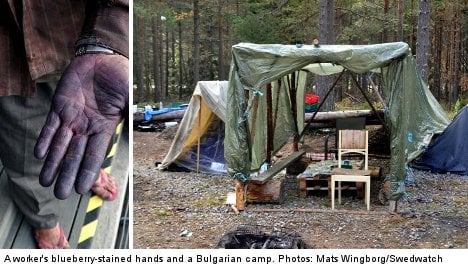The body parts were found early on Wednesday afternoon near Gålö by Polish tourists on a mushroom picking expedition. Shaken by the discovery, they reported the find to a local pizzeria owner who in turn alerted the police.
“I am going to have nightmares about this,” explained Peter Milosevic, the pizzeria owner, to the Aftonbladet newspaper.
Police arrived soon after and removed the body, while forensic experts combed the scene for clues. However, despite officers completing their investigation at the scene, it remains unknown how the person died.
“We have launched a routine investigation into murder,” said Björn Åhlin of the Stockholm police to the TT news agency.
The body was found around 2pm by the tourists, and Milosevic helped interpret their story and lead police to the find.
According to police, the body was found at a campsite where a person had reportedly been living for several years, and it is believed the body had been there for a long time.
“As I understand it’s a complete skeleton. But then again I haven’t counted all the bones,” Björn Åhlin told the paper, adding that the police are currently comparing the find with the people who have been reported missing in the area.
TT/The Local/og


 Please whitelist us to continue reading.
Please whitelist us to continue reading.
Member comments